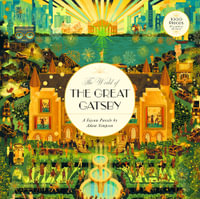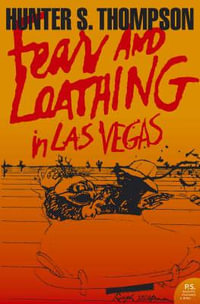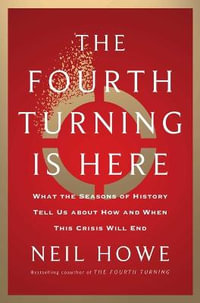
Rising Star, Setting Sun
Dwight D. Eisenhower, John F. Kennedy, and the Presidential Transition That Changed America
By: John T Shaw
Paperback | 10 September 2019 | Edition Number 1
At a Glance
Paperback
$37.50
Aims to ship in 15 to 25 business days
When will this arrive by?
Enter delivery postcode to estimate
In Rising Star, Setting Sun, John T. Shaw focuses on the intense ten-week transition between JFK’s electoral victory and his inauguration on January 20, 1961. In just over two months, America would transition into a new age, and nowhere was it more marked that in the generational and personal difference between these two men and their dueling visions for the country they led. The former general espoused frugality, prudence, and stewardship. The young political wunderkid embodied dramatic themes and sweeping social change.
Extensively researched and eloquently written, Shaw paints a vivid picture of what Time called a “turning point in the twentieth century” as Americans today find themselves poised on the cusp of another watershed moment in our nation’s history.
Industry Reviews
"A focused history of the period between Election Day 1960 and Inauguration Day 1961." -- Kirkus Reviews
"While Shaw ostensibly focuses on the transition period between the two administrations exiting and entering the White House, his sweeping book covers much more ground. Shaw's elegant style and attention to history serve as a reminder of that peaceful transition that was a turning point in the 20th century." -- Bookreporter
"A gripping examination of the transfer of power between Presidents Eisenhower and Kennedy at a critical moment in history." -- Publishers Weekly
"With a stirring address and the passing of the torch to a new generation, the 1961 presidential inauguration marked a pivotal moment in U.S. history. We take these quadrennial rituals of peaceful transition for granted, but in fact they are carefully planned and executed. John Shaw provides fascinating behind-the-scenes detail of this iconic event while exploring the broader context of a nation in evolution. Extensive research, insightful analysis, and a journalist's knack for telling a good story makes Rising Star, Setting Sun essential and entertaining reading for anyone interested in the American presidency." -- Betty K. Koed, Historian
"Shaw vividly portrays the generational clash between the upstart former lieutenant and the iconic general. Following a campaign marked by raw personal attacks, they overcame their disdain, with a passing of the torch and stirring rhetoric that became a high point in each president's career." -- Richard Cohen, Chie Author of The Almanac of American Politics
"John Shaw's Rising Star, Setting Sun is a riveting account centered on the ten weeks between the electoral victory of John Kennedy on 8 November 1960 to his inauguration on 20 January 1961. While the focus of action rests on the transfer of power from Dwight Eisenhower to his successor, Shaw additionally provides snapshots of the trends that coursed through American society in the 1950s-1960s. He deftly handles matters related to that era's economic vitality, demographic shifts, cultural happenings, scrappy partisan politics, and international dilemmas. Shaw's analysis of rival types of statecraft, particularly in the foreign policy field, rewards close reading as he compares the cautious, prudent, skeptical Eisenhower with the taut, enthusiastic, gung-ho Kennedy. This sharp difference, as Shaw explains in crisp prose, was highlighted in Eisenhower's farewell speech which contained apt warnings against the "military-industrial complex" versus Kennedy's inaugural address with its declaration that the United States would "pay any price" to ensure the global "success of liberty." -- David Mayers, Boston University, author of America and the Postwar World
"The presidential transition from Dwight Eisenhower to John Kennedy starkly contrasted the parties, temperaments, and generations of the two leaders, yet the transfer of power proceeded amicably in the national interest. John Shaw's Rising Star, Setting Sun slips behind the veil of civility to take the measure of both men and assess their personal antagonisms." -- Donald A. Ritchie, author of Electing FDR: The New Deal Campaign of 1932
"John Shaw does a brilliant job of capturing the hidden tensions during the transition from Eisenhower to Kennedy. The two men couldn't have been more different in personal style and policy priorities. Shaw brings to life the sharp contrast between Ike and J.F.K. as the old gave way to the new." -- Larry J. Sabato, Author, The Kennedy Half-Century, and Director of the UVA Center of Politics
"Even though John Shaw's superbly-written narrative concentrates on the transition from Dwight Eisenhower to John Kennedy, he has accomplished far more by characterizing the strengths and weaknesses of these two epochal figures throughout their presidential years." -- Irwin F. Gellman author, The President and the Apprentice
"Shaw's account deftly balances anecdote and analysis, making this a valuable read for those interested in both J.F.K. the pol and J.F.K. the person. " -- Publishers Weekly (starred) [praise for 'JFK in the Senate']
"A captivating account of Kennedy's often overlooked formative years in the Senate. A fascinating read." -- Senator Robert Casey of Pennsylvania [praise for 'JFK in the Senate']
ISBN: 9781643132280
ISBN-10: 1643132288
Published: 10th September 2019
Format: Paperback
Language: English
Number of Pages: 336
Audience: General Adult
Publisher: Pegasus Books
Country of Publication: US
Edition Number: 1
Dimensions (cm): 22.86 x 15.24 x 2.29
Weight (kg): 0.31
Shipping
| Standard Shipping | Express Shipping | |
|---|---|---|
| Metro postcodes: | $9.99 | $14.95 |
| Regional postcodes: | $9.99 | $14.95 |
| Rural postcodes: | $9.99 | $14.95 |
How to return your order
At Booktopia, we offer hassle-free returns in accordance with our returns policy. If you wish to return an item, please get in touch with Booktopia Customer Care.
Additional postage charges may be applicable.
Defective items
If there is a problem with any of the items received for your order then the Booktopia Customer Care team is ready to assist you.
For more info please visit our Help Centre.
You Can Find This Book In
This product is categorised by
- Non-FictionHistoryRegional & National HistoryHistory of the Americas
- Non-FictionBiographies & True Stories BiographiesHistorical, Political and Military Biographies
- Non-FictionPolitics & GovernmentPolitical Structure & ProcessesPolitical Leaders & Leadership
- Non-FictionHistoryEarliest Times to Present Day20th Century History from 1900 to 2000























